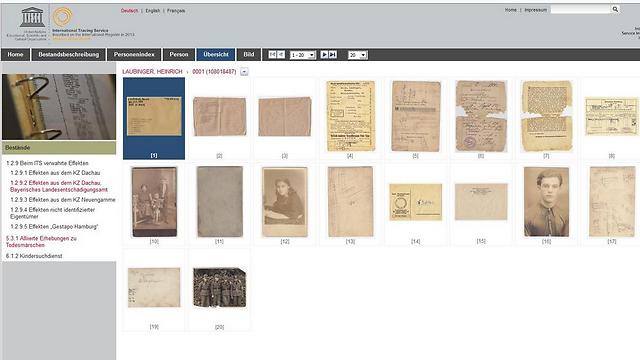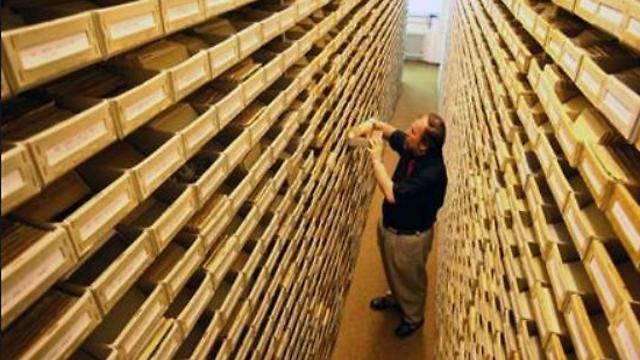
Holocaust-era archive uploads thousands of documents
Organizations posts photos and papers of Nazi victims online, which it hopes will help academic researchers, families of the victims, and students.
The International Tracing Service has posted photos and personal papers of Nazi victims online, along with other selected documents from its massive archive. The group deals with people who disappeared during Holocaust.
The organization published the first batch of some 50,000 documents on Wednesday, which makes for just a fragment of their collection encompassing 30 million items.

"Archives must not hide themselves from the digital world. Otherwise, one day they will be forgotten," said head of International Tracing Service (ITS) archive department Christian Groh.
The ITS was founded by Allies in the final days of the World War II. At first, its mission was help find the people who went missing in war zones or concentration camps.
In 2007, the organization first granted access to its archives in the German city of Bad Arolsen to scholars and researches, marking the transition from a tracing service to a research institution.
Items from the past
The group's collection includes documents on Nazi death marches, forced labor and children lost during the war. ITS also holds around 3,300 personal items that Nazis had seized from concentration camp inmates.
Most of them are photos, personal papers or small items, as the guards would usually seize anything of value.
Photos of some of the items and digital versions of personal documents were made available online on Wednesday. The ITS representatives said they were hoping the material would find its way to proper owners or their descendants.
The organization also said it hopes that the documents could help academic researchers, families of the victims, but also students doing school projects.
The ITS representatives also said that they intend to publish more documents. However, it was not possible to make their whole archive available online, according to the group.











